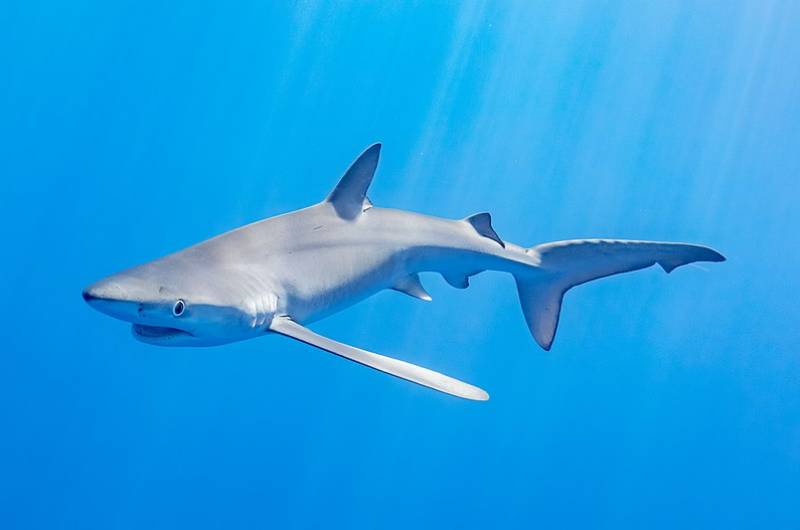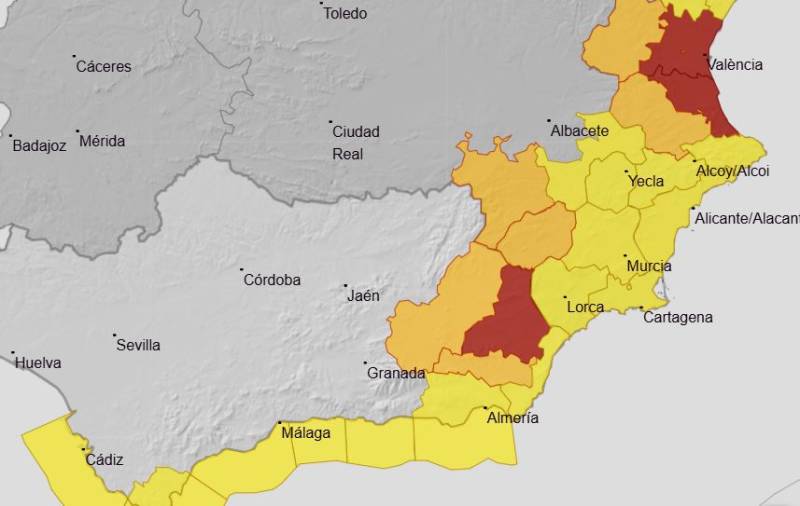

- EDITIONS:
 Spanish News Today
Spanish News Today
 Murcia Today
Murcia Today
 Alicante Today
Alicante Today
Date Published: 21/08/2023
Swimmer attacked by blue shark on Spanish beach
Several Valencian beaches were closed after a bather suffered a shark bite to his foot

The usually calm waters of the Valencian coast were thrown into disarray on Thursday August 17 when a man enjoying a swim on Aigua Blanca beach in the town of Olivia was bitten by a shark.
Incredibly, the victim wasn’t sure how the injury came about until he was examined by medical staff.
“I saw a shadow, I noticed a blow to my left leg and then a bite to my right foot,” he said, and explained that he was just paddling in knee-deep water, surrounded by other oblivious bathers, when the attack occurred.
Keeping his cool, the man waded into deeper water so as not to alarm the other beachgoers and examined his wound. Seeing that it was still bleeding, he made his way to a beach health post who sent him to the Olivia Health Centre.
He was patched up and medics quickly established that he had suffered a shark bite. With this news, Olivia City Council immediately ordered all swimmers out of the water on Aigua Blanca, Rabadells and Aigua Morta beaches after several more sightings of the blue shark were reported. The shorelines remained closed until Friday morning, when it was established that the animal had left Valencian waters.
Fearless residents and tourists returned to the sea as soon as the beaches were reopened and the victim himself said the shark attack won’t put him off either: “The first thing I am going to do when my foot heals is to go back. If you are afraid of things, you are finished,” he said.
Just up the coast on Piles beach, another shark was spotted on Friday evening, August 18, and lifeguards on jet skis herded swimmers out of the water as a precaution.
"I was in the water with my daughter, we saw the lifeguard approaching with the jet ski and we didn't know what was happening.
"He told us that we had to get out," one beachgoer explained.
Spanish police closed the beach after the blue shark sighting but it was back in operation by Saturday morning.
To say that the shark attack was an unusual and unexpected occurrence is something of an understatement. The blue shark is one of the most common species and is a frequent visitor to Spanish coasts. They are easily spotted as they avoid the deep seas but the Oceanogràfic Foundation pointed out that it usually only receives between four and six sighting notices a year; there have been far more than that during the summer months alone.
The fact that the blue shark that approached Oliva was swimming in barely half a meter of water indicates that "it must be sick or disoriented since it bothers them a lot to be crawling through the sand, it is not their natural environment," explained Oceanogràfic biologist Jaime Penadés.
He was at pains to stress that the incident in Oliva wasn’t technically an attack but rather an interaction between animal and human; the blue shark has very sharp teeth and a strong upper jaw and much more damage would have been caused if it had really meant to attack.
"There is no need to be afraid of sharks because the percentage of attacks is very low, and there are only between seven and twelve deaths a year worldwide from this cause," Penadés said, adding that the vast majority of fatalities are caused by far more dangerous species such as the great white and tiger sharks.
In other news: 5 pets that will be banned in Spain from September
Image: Diego Delso via Wikimedia Commons
staff.inc.and
Loading
See more news about animals in Spain:
OR
Sign up for the Spanish News Today Editors Roundup Weekly Bulletin to get a comprehensive email with all the week’s news for Spain, Murcia, Alicante and Andalucía.
Get a sneak peek – here are a few of our recent Subscription Bulletins:
Discount Special Offer subscription:
36.95€ for 48 Editor’s Weekly News Roundup bulletins!
Please CLICK THE BUTTON to subscribe.
Contact Murcia Today: Editorial 000 000 000 /
Office 000 000 000

























